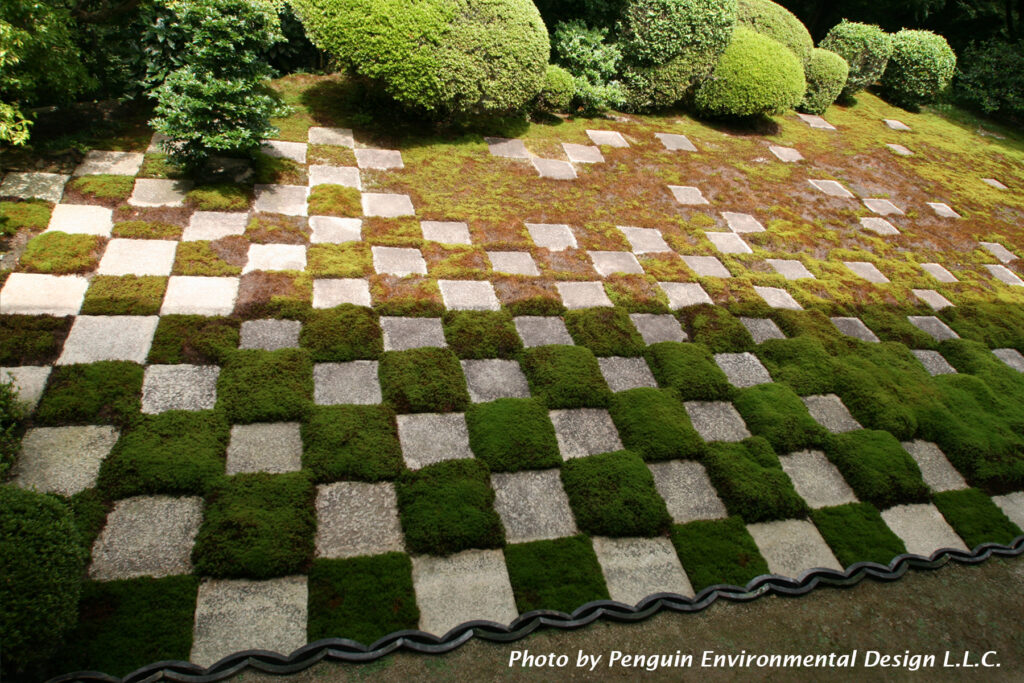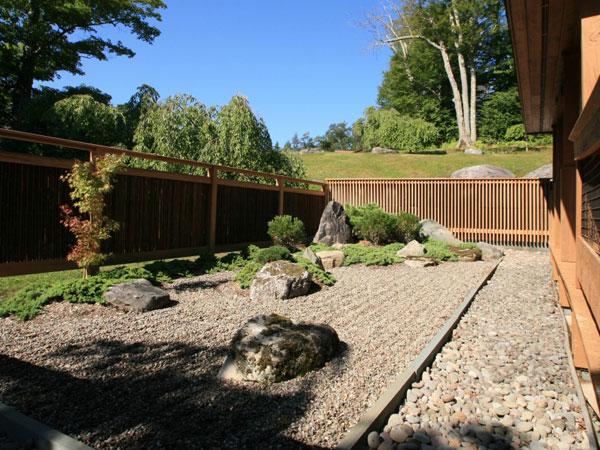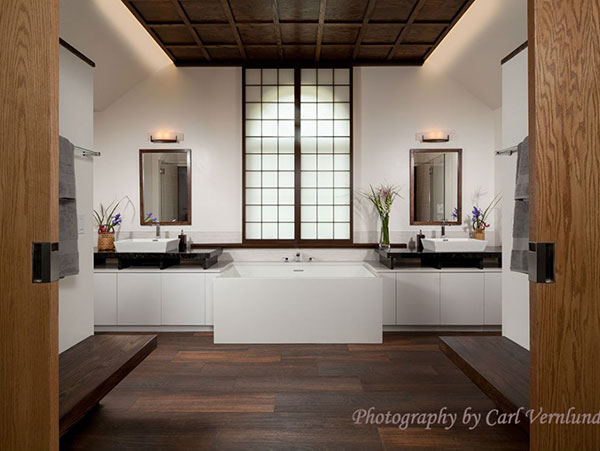“The flow of the river never ceases, and the water never stays the same…” This is the opening phrase of Hojoki, a famous Japanese essay by Kamono Chomei in the 13 century. Almost all Japanese children learn this in their schools. I think that transience is something that many Japanese hold in their minds, which has influenced Japanese arts and culture, including gardens.
I think that Zen has explored transience even further. The Ryoanji Temple garden is one of the famous Japanese gardens in Zen temples. This garden has a simple configuration made of rocks and sand. There are 15 rocks in the garden, but you cannot look at all rocks at one time from any direction. Some people think that this implies the idea of imperfection. In a sense, imperfection implies the continuous flow of life. If something is perfect, its’ future does not have any choice but the end of life.
Mirei Shigemori, a Japanese garden designer and historian, designed a modern Japanese garden in Tofukuji Temple. The layout of this garden is like a chessboard. Yet, we can see the sense of imperfection in the broken pattern at the far right corner of this garden.
Even though I have lived in the States for more than 20 years, the sense of transience and imperfection has never left me. That is why my design works always have Japanness in them.



